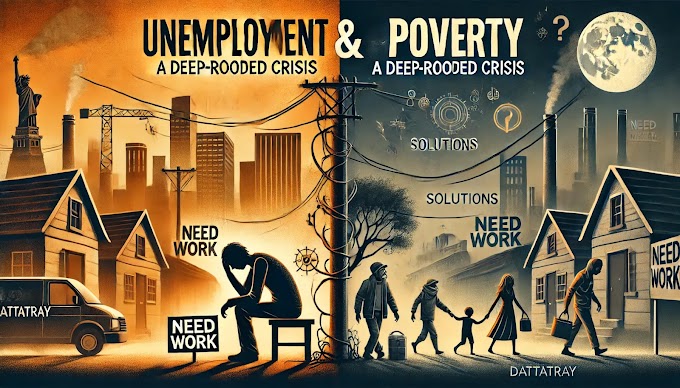Economic Planning in India: A Comprehensive Analysis
Introduction:
Economic planning plays a pivotal role in determining the growth and development of nations. In India, economic planning has been a cornerstone of the country's economic policies since its independence in 1947. This blog article provides an in-depth analysis of economic planning in India, focusing on its history, objectives, challenges, and its impact on the country's development.
I. Historical Background:
India's economic planning can be traced back to the formation of the Planning Commission in 1950, which was responsible for formulating five-year plans. The First Five-Year Plan (1951-1956) focused on agricultural and industrial development. Since then, thirteen five-year plans have been implemented, with each plan addressing specific socio-economic challenges and goals.
II. Objectives of Economic Planning in India:
The objectives of economic planning in India have evolved over time. They generally include:
Economic Growth: Economic planning aims to achieve and sustain high economic growth rates by promoting investments, improving infrastructure, and enhancing productivity across sectors.
Social Justice and Poverty Alleviation: Economic planning seeks to address socio-economic inequalities, reduce poverty, and ensure equitable distribution of resources. This objective is achieved through policies like rural development programs, employment generation schemes, and social welfare initiatives.
Human Development: Economic planning emphasizes investments in education, healthcare, and social infrastructure to improve the overall standard of living, enhance literacy rates, and reduce mortality rates.
Regional Balanced Development: India being a diverse and vast country, economic planning aims to bridge regional disparities by promoting development in disadvantaged regions, thus ensuring inclusive growth.
III. Challenges Faced by Economic Planning in India:
Despite its achievements, economic planning in India has faced numerous challenges:
Population Growth: India's rapidly growing population presents a significant challenge to economic planning. Meeting the increasing demands for resources and providing sufficient employment opportunities poses a formidable task.
Poverty and Inequality: Despite progress, India still faces high poverty rates and significant income disparities. Economic planning strives to alleviate poverty and reduce the wealth gap through inclusive growth policies.
Infrastructure Gap: India's infrastructure deficit, especially in rural areas, poses a significant hurdle to economic development. Bridging this gap requires substantial investments and effective planning.
Environmental Sustainability: Economic planning must focus on sustainable development to mitigate environmental degradation caused by rapid industrialization and urbanization.
IV. Impact and Achievements of Economic Planning in India:
Economic planning has made significant contributions to India's development:
Industrial Growth: The planned approach has facilitated the growth of various industries, contributing to economic diversification, technology transfer, and employment generation.
Agriculture and Food Security: Economic planning has supported the agricultural sector through initiatives like the Green Revolution, improving crop productivity, ensuring food security, and reducing rural poverty.
Education and Healthcare: Economic planning has expanded access to education and healthcare, resulting in improved literacy rates, skill development, and better healthcare outcomes.
Infrastructure Development: Economic planning has boosted infrastructure development, including transportation, power, and telecommunication. This has fostered regional connectivity, facilitated trade, and attracted investments.
V. Beyond Traditional Economic Planning:
With the dissolution of the Planning Commission in 2015, India has moved towards a more decentralized and flexible approach to economic planning. The introduction of the NITI Aayog (National Institution for Transforming India) has shifted the focus to cooperative federalism, competitive and cooperative governance, and evidence-based policymaking.
Conclusion:
Economic planning has played a crucial role in shaping India's development trajectory. Over the decades, it has addressed various socio-economic challenges and spurred growth across sectors. However, economic planning must adapt to emerging challenges like population growth, poverty, environmental sustainability, and regional disparities to ensure a more inclusive and sustainable development path for India.
.gif)







.png)

.png)

0 Comments